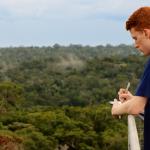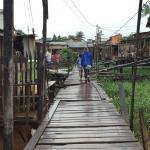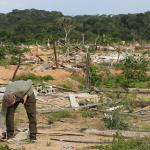


Forest Cartographies: Mapping Amazonian Urbanities and the Politics of Nature (ARCH 6308, ROMS 6682, SHUM 6308)
Thursday, 2:30–4:25 p.m.
Course Instructors: Bruno Bosteels (Romance studies) and Tao DuFour (architecture)
This seminar explores the relationship between the economies of emerging cities and the urbanization of fundamental historical ecologies. The seminar focuses on the geographical context of the Brazilian Amazon and the conditions of its urbanization, occasionally in dialogue with ongoing political processes in neighboring Bolivia.
The urbanization that is characteristic of the Amazon is an extraordinarily complex phenomenon. It involves dimensions extending from the pole of industrial resource extraction and the resultant formation of advanced capitalist economies in the heart of the forest, to the fragile continuity of the traditions of indigenous societies whose economic structures and spatial environments are experienced as fundamentally intertwined with rural, communitarian, and mythic horizons. In order to interrogate the urban driven form of spatial and territorial expansion in the Amazon, the seminar will inquire into the political economies that motivate it, and thus the orienting ontology, specifically, the ontological assumptions about the meaning and significance of the natural world.
By considering ontological plurality at the level of spatial practices and technologies, the seminar aims to explore the tensions between the global capitalist tendency toward urbanization and modernizing, and the local traditional orientation toward "ecologizing" as the basis for an imagined political economy that is at the same time a politics of nature.
The seminar will be organized in a series of clusters with an interdisciplinary focus combining elements of architecture, ethnography, anthropology, cartography, political economy, and political philosophy. Clusters include theories of urbanization; nature/culture and human/nonhuman dualisms and critique; life-world and intentionality; commune, community, and state; primitive accumulation and neoextractivism; geophilosophy and cognitive mapping; and human ecology and the anthropocene.
To be considered, graduate students in the College of Architecture, Art, and Planning or Arts and Sciences should submit a recent CV and a one-page proposal explaining their interest in the course.